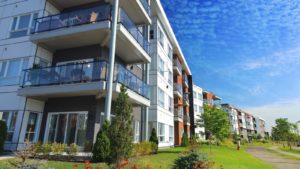A of the most commonly used coding protocols is Secure Socket Layer (SSL) and its replacement, Transport Layer (TLS). Such standards create a protected connection between a resident's system and the internet, ensuring that all information exchanged remains private. When tenants in an MDU use websites that employ SSL/TLS, their private information, such as login credentials and payment card numbers, is encrypted. This implies that although if someone tries to intercept the information, they would merely see a jumble of letters and digits, rendering it almost impossible to understand. By promoting the adoption of these standards, MDUs can greatly improve the security of their tenants' online actions.
Another important encryption technique is Virtual Secure Tunnel (VPN) solutions. A VPN creates a protected pathway for internet traffic, which protects individuals from invasive eyes, especially when using shared wireless networks. In an MDU, in which numerous residents may connect to the identical network, employing a VPN can help ensure that individual web actions remain private. This is particularly crucial for tasks including internet transactions or retrieving sensitive data. By encouraging the adoption of VPNs among residents, MDUs can foster a safer online environment and assist safeguard against information leaks.

In addition to these encryption techniques, it is essential for MDUs to inform their tenants about the significance of cybersecurity. Many people may not be conscious of the threats linked with utilizing common web services. Offering information on how to recognize phishing efforts, the necessity of robust passwords, and the benefits of using secure sites can empower residents to take charge of their internet security. Seminars or educational meetings can be effective ways to raise awareness and promote optimal practices for internet security.
Finally, MDUs should Click Here consider working with web service providers (ISPs) that prioritize safety and provide enhanced coding options. By partnering with ISPs that utilize robust encryption standards, MDUs can guarantee that their residents have access to protected web services. This collaboration can result to enhanced overall safety for the whole building, as well as enhanced confidence among tenants. By implementing these steps, MDUs can create a more secure online environment, safeguarding user privacy and information security in an increasingly connected environment.